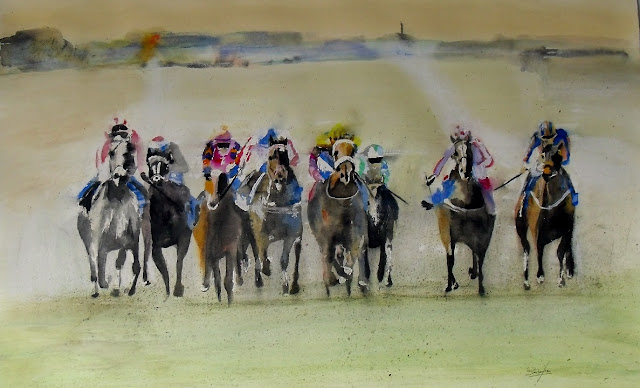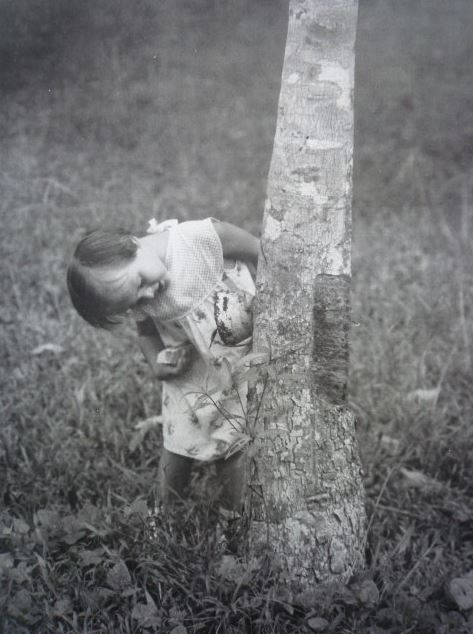A Transformation
 |
| Lethal Force by Barbara Grafton |
'You use a glass mirror to see your face; you use works of art to see your soul.' - George Bernard Shaw
I have a commission for a painting from a Newmarket-based firm, as a retirement gift for one of the partners. I have done the ground work, obtained permission to use a photograph of the 2013 July Cup, won by Lethal Force, and made preliminary sketches from it. It’s a superb photo, full of dynamism and power, eight horses and their jockeys thundering towards the finishing line. Now I just have to convey that in watercolours and ink.
It is punishingly hot, sapping my energy, but the framer needs the painting. I desperately need inspiration, that mysterious collaboration between both left and right hemispheres of the brain, the analytical, methodical, and disciplined working alongside the free-wheeling, instinctive, and daring.
Still the paper lies there, virginal and mocking. What if my first marks are entirely wrong, the paints turn muddy, or the inks obscure some vital detail? The paralysis of wanting perfection, of negative thinking. I drink a glass of water, wander around, and shuffle my sketches. I am wasting time and energy. Salvador Dali declared perfection to be unreachable. Picasso said to know what you’re going to draw, you have to begin drawing. I have built up a slight head of steam, fuelled by my frustration and irritation. I order myself to make a leap of faith and just start the ***** thing.
My initial marks are intentionally faint, in a hard pencil, just sketching in the outlines of the horses, the railings and distant buildings. They are fine, no corrections required, and I am happy with the composition. I mask areas. The process so far has been controlled and precise, but at least it has begun. Tension and adrenaline are building as I spray the paper with water and lay down my first colours. I cannot convey drama and movement by being tentative, so I load my brush generously and make wide sweeping movements with it. The paint dries fast in the heat, so I spray more water, apply more paint. The analytical side of my brain is dominant, making conscious decisions that my eyes and hand translate onto the paper.
The more I paint, the more creative freedom I feel until, at last, inspiration, my subconscious, intuition, imagination, authentic self, inner voice - call it what you will - takes over. Finally, I can paint instinctively, dynamically, unfettered by limiting inner voices and the desire for perfection. I have ceased to be the driver and become the vehicle.
There is no lack of energy as I lay down colours, wipe out others, balance tones, highlight details. Time has no meaning. My vision for the painting is coming alive, and I now have certainty that it will not be a failure. The blank paper, covered in marks and colours, is no longer intimidating. There is a childlike joy and playfulness in completing the finishing touches: dark ink splashes for the divots and soil flung up by the hooves at full racing gallop; the silks and colours of the jockeys.
Exhausted, I prop up
the picture and step back to view it. With a sigh of relief, I recognise that I
have overcome atelodemiourgiopapyrophobia.
The blank sheet of paper has become a painting that has never existed before, a
painting that I gave life and which is “good enough” even for my vocal inner
critic.



Comments
Post a Comment